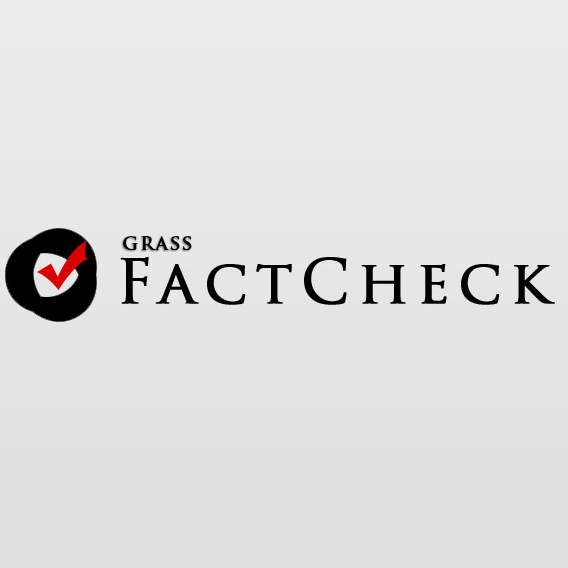The Ministry of Finance has submitted the initial draft of the 2026 state budget to the Parliament. The document is based on a projected 5% GDP growth. It set the nominal of the economy at GEL 111 billion, the budget deficit at 2.5% and government debt at 35% of the GDP.
Total revenues are expected to rise 9.9% to GEL 30.3 billion whilst total expenditures increase 9.1% to GEL 30.5 billion.
Taxes remain the main source of budget revenue. The projected growth rate in this category is relatively modest at 5.2%. Taxes account for 79.3% of revenues in the 2025 budget as compared with 76% in the 2026 draft.
Debt issuance is planned at GEL 3.4 billion in 2025, increasing to GEL 5.2 billion in the 2026 draft. Furthermore, the amount allocated for debt repayment rises from GEL 1.8 to GEL 3.4 billion whilst overall liabilities grow by GEL 300 million to GEL 2.3 billion.
Of the GEL 5.2 billion in planned debt, GEL 1.8 billon is domestic and GEL 3.4 billion is external. A total of GEL 2 billion is standard loans and GEL 1.4 billion is securities within external debt.[1] Domestic debt will be entirely raised through the issuance of government securities.
Table 1: Revenues and Expenditures in the State Budget (GEL Million)
Source: Ministry of Finance of Georgia
The Ministry of Finance expects to collect 5.2% more revenue from taxes under the draft budget. The largest increase is projected for income tax, which is expected to rise by 10.9%, followed by VAT at 6.7%. Nominal growth in excise and profit taxes is expected to remain below the projected inflation rate. Revenue from import duties is not expected to change. Whilst collection from other taxes is set to decline, this category does not represent a separate tax type and mainly includes unallocated tax revenues.
Table 2: Major National Taxes (GEL Million)
Source: Ministry of Finance of Georgia
Funding for nearly all spending institutions is set to increase with few exceptions. The largest allocation – GEL 9.6 billion – again goes to the Ministry of Internally Displaced Persons from Occupied Territories, Labour, Health and Social Affairs. More than half of the aforementioned – GEL 5 billion – is allocated for pensions. The age-based pension for individuals under 70 will rise by GEL 20 to GEL 370 whilst pensions for those 70 and older will increase by GEL 45 to GEL 495. Pensions accounted for 16.1% of the budget in the 2025 budget plan; this share rises to 16.5% under the 2026 draft. In addition to the nominal increase, the number of pensioners is also growing: 840,000 individuals received pensions in January 2024, increasing to 864,000 in December 2024 and 880,000 by August 2025.
Funding for targeted social protection programmes for specific population groups will increase by GEL 83 million to GEL 1.7 billion. The universal health insurance budget will also rise by GEL 130 million to GEL 1.35 billion.
The Ministry of Infrastructure follows with a GEL 3.1 billion allocation with GEL 700 million designated for the maintenance of roads, another GEL 700 million for the construction of high-speed highway, GEL 515 million for the restoration and development of water supply systems and GEL 623 million for the construction and rehabilitation of educational infrastructure.
By contrast, funding for the Ministry of Education, Science and Youth decreases significantly by GEL 470 million to GEL 2.6 billion. Whilst the 2025 budget included GEL 70 million for student transportation, the 2026 draft allocates zero. Funding to support the development of educational and scientific infrastructure falls from GEL 538 million to GEL 58 million.
The Ministry of Defence’s budget rises by GEL 70 million to GEL 1.8 billion with the entire increase allocated to salaries. Wages within the Ministry grow from GEL 832 million to GEL 920 million. Conversely, spending on defence capability development decreases by GEL 45 million – from GEL 330 million to GEL 285 million.
Funding for the Ministry of Internal Affairs also rises primarily for salaries, increasing from GEL 967 million to GEL 1.072 billion. The increase for the Ministry of Economy is mainly allocated to the development of the electricity transmission network.
Table 3: Allocation for Ministries (GEL Million)
Source: Ministry of Finance of Georgia
Funding for other spending agencies beyond ministries also mostly rises due to salary increases. The State Security Service’s budget grows from GEL 252 million to GEL 265 million, the Prosecutor’s Office from GEL 71 million to GEL 96 million and the Special State Protection Service from GEL 110 million to GEL 121 million. Funding for the Public Broadcaster remains at GEL 101 million whilst the Central Election Commission’s allocation falls from GEL 129 million to GEL 44 million, reflecting a non-election year.
The budget is expected to be finalised in the second half of December following several revisions. Whilst the main allocations generally remain stable, some items are adjusted, as per past practice. Both revenues and expenditures increase in most cases.







